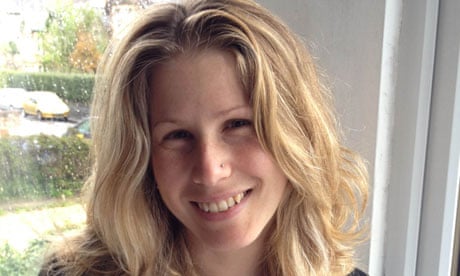A new website dedicated to media-friendly female experts has been launched in the wake of an embarrassing failure by the BBC to find a woman analyst to debate breast cancer treatment on Radio 4.
John Humphrys, presenter of the Today programme, was reduced during an on-air discussion last week to asking a male contributor to imagine that he was a woman because no female experts had been available. Caroline Criado-Perez, a freelance journalist and blogger, immediately took to Twitter and found several female experts within minutes. "Again and again, the BBC doesn't try hard enough," she said. "Seemingly, it doesn't think fair representation is particularly important."
This weekend Criado-Perez, 28, is overseeing the official launch of thewomensroom.org.uk. She and her co-founder, Catherine Smith, hope the website will become a constantly expanding register of women who have personal experiences to relate and relevant expertise. A trial run last week, as Women Unite, was an immediate success as more than 40 women signed up in 48 hours, with expertise in standup comedy, entrepreneurship, new media, personal finance, domestic violence, trade unions and feminism. Criado-Perez and Smith hope that female virtuosos of engineering, motor racing, science, maths, medicine and bridge building will eventually come forward or be nominated.
"We've had a few critics saying, 'why do the BBC's job for it?'," says Criado-Perez. " 'And why do it unpaid?' But when a problem exists and nothing happens for years, then it's time to take the initiative. It's time to do it ourselves."
Radio 4's Woman's Hour has also begun a long-term project to give a higher profile to women in diverse areas of society. Last week it launched a search, chaired by Eve Pollard, a former national newspaper editor, for Britain's 100 most powerful women, nominated by listeners. The aim is to see how far women have come and the areas in which they still play no significant part. "We are hoping to hear from women we've never heard before," Pollard told Woman's Hour host Jenni Murray, "in academia, science, research, all sorts of areas that don't catch the eye of the media."
Criado-Perez, who is doing a master's degree in gender, also runs Week Woman, a magazine "for people interested in a world that's more than celebrities, shoes and even so-called 'women's issues'," and she plans to establish a UK feminist party. She points out that, on the day before the breast cancer discussion, the Today programme had again brought two men together – Simon Blake from Brook, offering sexual advice to under-25s, and Dr Anthony Seldon, headmaster of Wellington College, a public school – to discuss teenage girls and contraception.
"I don't know if the BBC called a headmistress of an expensive girls' boarding school, but statistics suggest that she would have been less likely to say yes, and less likely to consider herself an 'expert'," says Criado-Perez. "And that female reticence is something to be tackled. Women don't define themselves as 'experts' and they don't put themselves forward. But as someone who had been a teenage girl herself, the headmistress would still have been preferable.
"Too often, 'expert' is defined as a white middle-class man. That doesn't reflect the huge expertise and variety of experiences we have in society. Instead, the media again and again draw on a small privileged group and the knock-on effect is that all those other voices aren't heard. Their needs aren't reflected in public policy and citizenship is defined by a very narrow strata and is far from inclusive. That's what makes me angry. The BBC says it can't find female experts. We say, you're just not looking hard enough."
A spokeswoman for the BBC said: "We welcome the endeavour to help identify women experts. Today does accept, like the rest of the BBC, that we can do more. However, we are also at the mercy of the professions involved in stories. For example, the research into breast cancer screening was undertaken by male scientists."
Criado-Perez points out, however, that, whether or not thewomensroom.org.uk takes off, the BBC should in future break the habit of a lifetime and always ask a female cancer expert to comment.

Comments (…)
Sign in or create your Guardian account to join the discussion